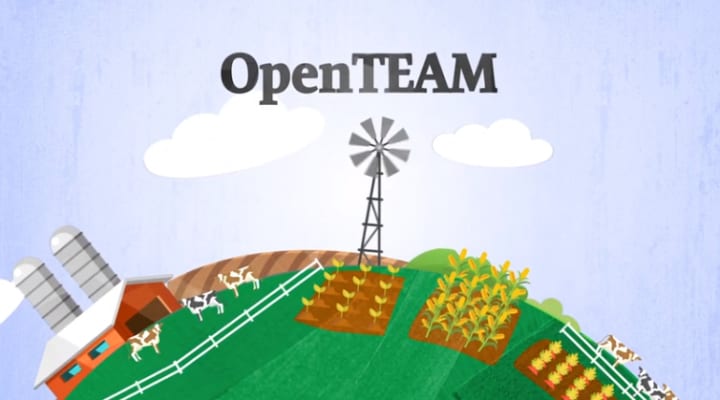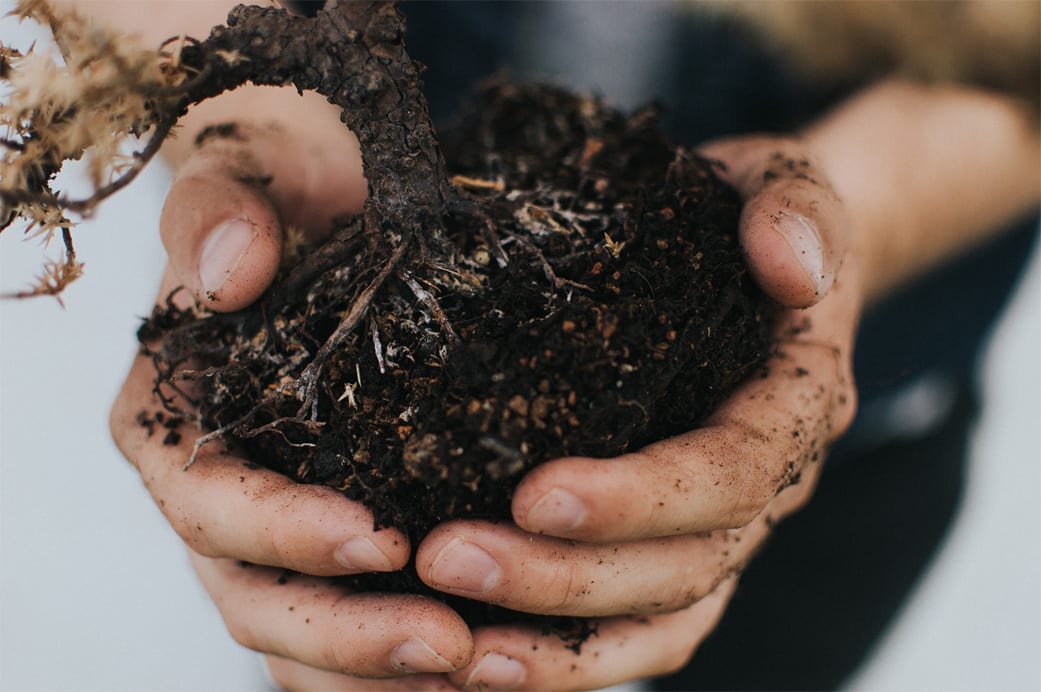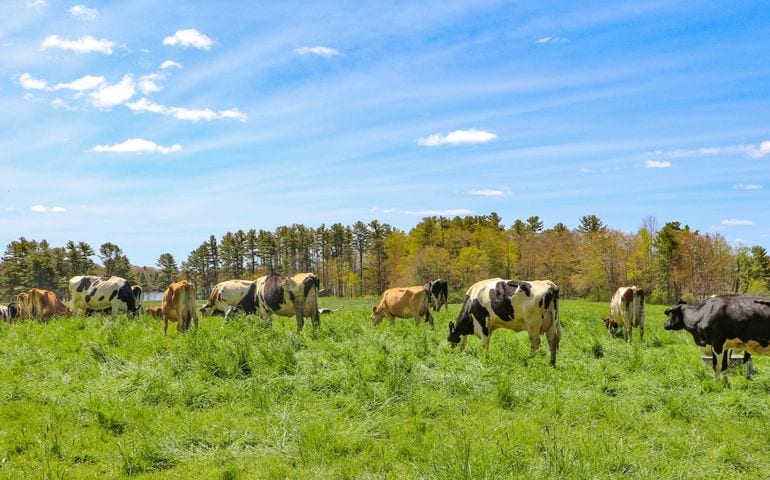FREEPORT, Maine —Wolfe’s Neck Center for Agriculture & the Environment, together with founding collaborators Stonyfield Organic, the USDA’s LandPKS project and Foundation for Food and Agriculture Research (FFAR), today announced the launch of OpenTEAM, the first open source technology ecosystem in the world to address soil health and mitigate climate change. OpenTEAM is projected to provide quantitative feedback on millions of acres of farmland by 2024.
OpenTEAM, or Open Technology Ecosystem for Agricultural Management, is a farmer-driven, interoperable platform to provide farmers around the world with the best possible knowledge to improve soil health.
Currently, farmers are faced with an ever-expanding assortment of decision-making software; however, these tools often do not “communicate” with each other, making it difficult to transfer, share or use by farmers and scientists or in supply chains. With OpenTEAM, farmers are not only in control of their own data, but also able to enter data once to access all available tools in the OpenTEAM collaborative.
OpenTEAM offers field-level carbon measurement, digital management records, remote sensing, predictive analytics and input and economic management decision support in a connected platform that reduces the need for farmer data entry while improving access to a wide array of tools. The platform will support adaptive soil health management for farms of all scales, geographies and production systems. OpenTEAM will also accelerate scientific understanding of soil health by providing more high-quality data to researchers collaborating on the project.
In addition to the founding partners, more than one dozen partner organizations have joined to develop, fund, and implement OpenTEAM to date. These include The Soil Health Partnership; General Mills; Colorado State University/USDA-NRCS Comet Farm; Applied GeoSolutions, LLC; DNDC Applications, Research and Training; Dagan, Inc.; Michigan State University Global Change Learning Lab; Sustainable Food Lab and Cool Farm Alliance; Purdue University Open Technology and Systems Center (OATS); University of British Columbia Center for Sustainable Food Systems; Regen Network; Our.Sci; Quick Carbon at Yale F&ES; U.S. Cover Crop Council decision tools; Sustainability Innovation Lab at Colorado (SILC); The University of Colorado Boulder; and FarmOS.
Wolfe’s Neck Center will coordinate OpenTEAM from its headquarters on more than 600 acres of conserved landscape and farmland on the coast of Maine. Implementation and demonstration will begin in fall 2019. Field testing will continue in the 2020 growing season across the U.S. and international hub farm networks.
“At Wolfe’s Neck Center, we are collaborating to create solutions that address climate change through regenerative agriculture,” said Dave Herring, executive director, Wolfe’s Neck Center for Agriculture & the Environment. “OpenTEAM pairs agriculture with open source technology to accelerate soil health right here in Maine and around the globe.”
The more than $10 million public-private collaboration is made possible by a $5 million grant from FFAR, with more than $5 million matching contributions coming from across the network, including a $200,000 grant from The Stonyfield Foundation and $200,000 in in-kind contributions and a grant from Stonyfield Organic.
“Optimizing soil management practices not only improves soil health, but also protects the environment,” said FFAR’s Executive Director Sally Rockey. “At scale, OpenTEAM can improve soil management practices for farmers around the globe and mitigate the effects of climate change.”
“Stonyfield is strongly committed to reducing our greenhouse gas emissions,” said Britt Lundgren, director of organic and sustainable agriculture at Stonyfield Organic. “Over half of our emissions come from agriculture, so in order to hit our target we know we need to work with the farms who provide our ingredients and help them reduce their emissions and sequester more carbon. OpenTEAM will enable us to do this, and track farms’ progress so we can be confident we’re hitting our goals.”
“We are inspired by the level of collaboration, leadership and vision our OpenTEAM partners have provided,” said Dorn Cox, PhD, research director, Wolfe’s Neck Center. “Through the power of open technology, we aim to make what was invisible visible and in so doing the unvalued valuable.”
For more information on OpenTEAM or becoming an OpenTEAM partner, please contact Dr. Dorn Cox at dcox@wolfesneck.org.





